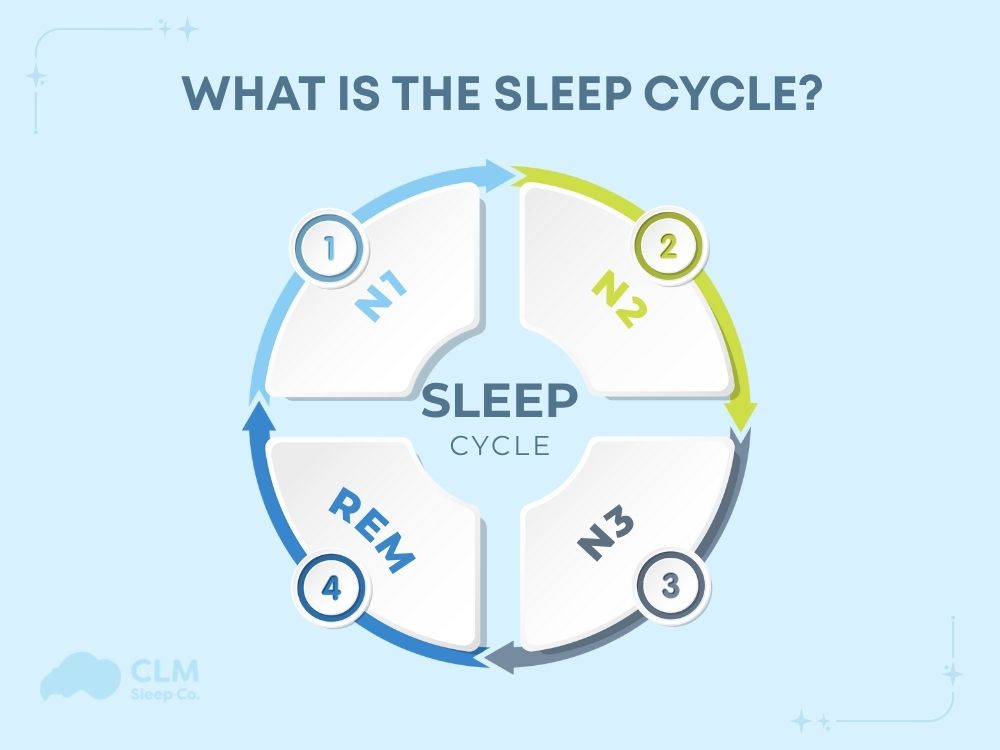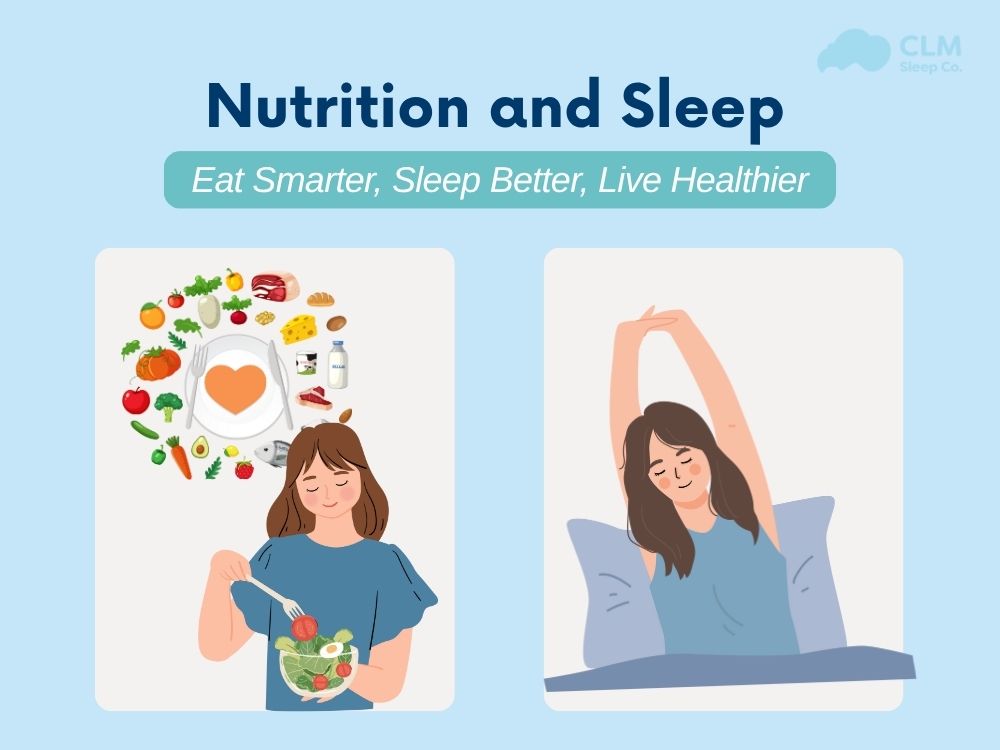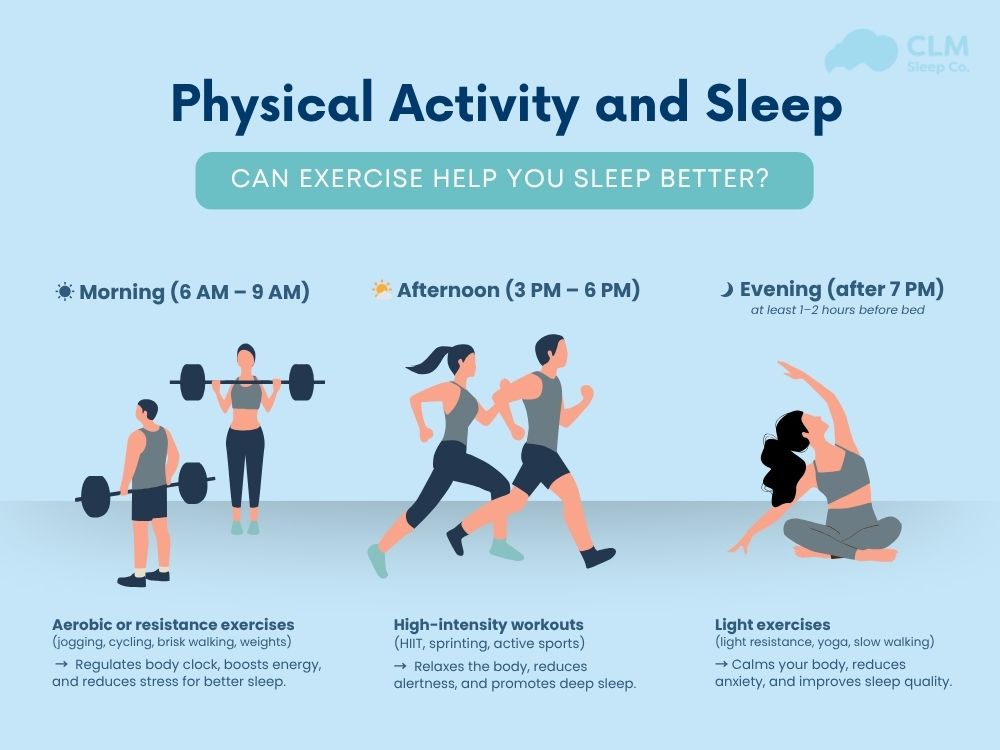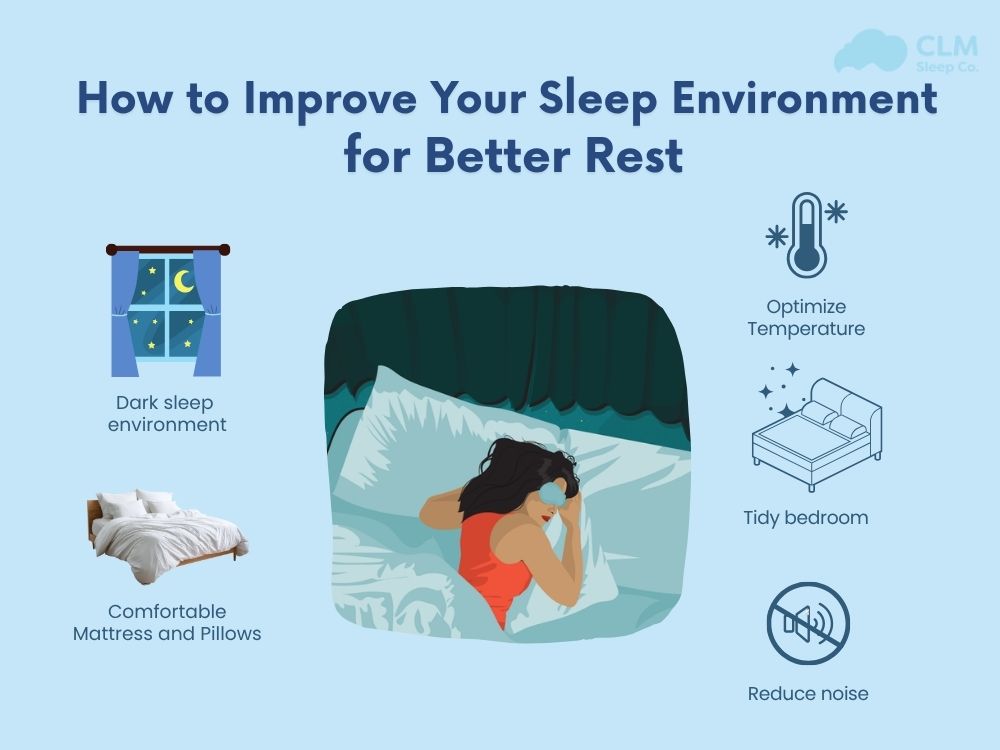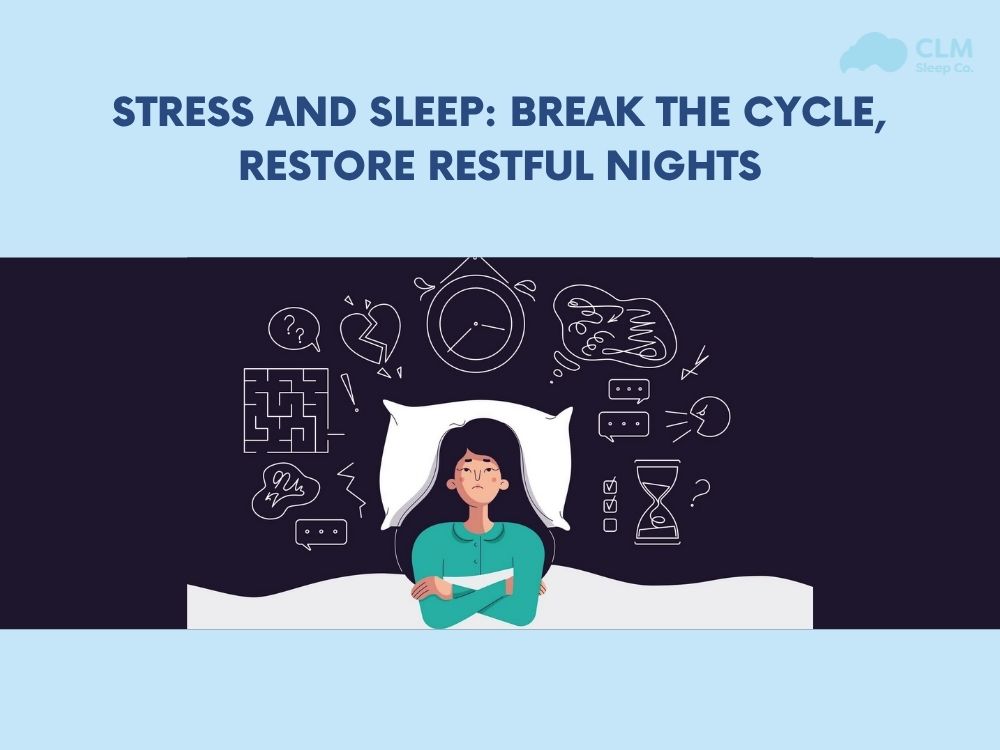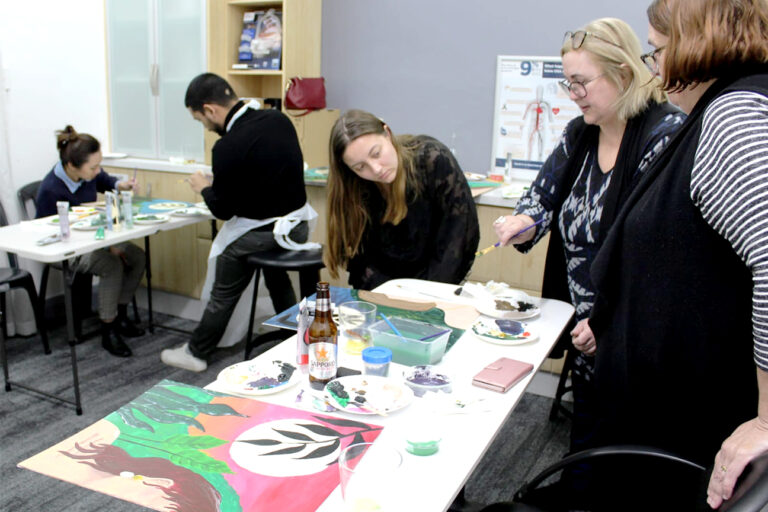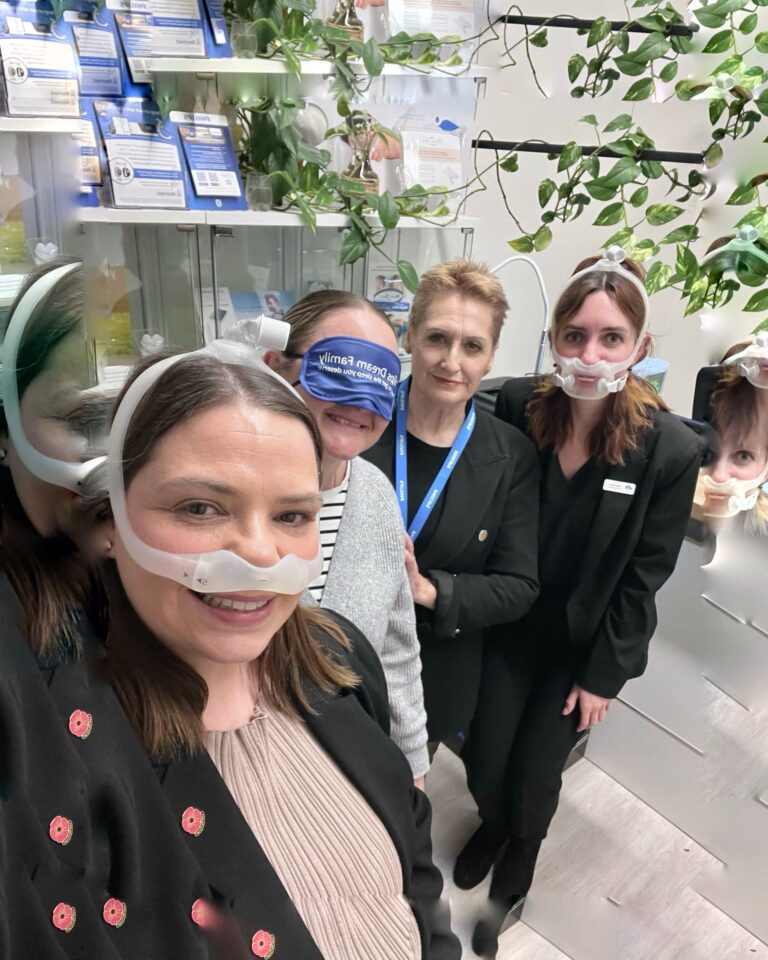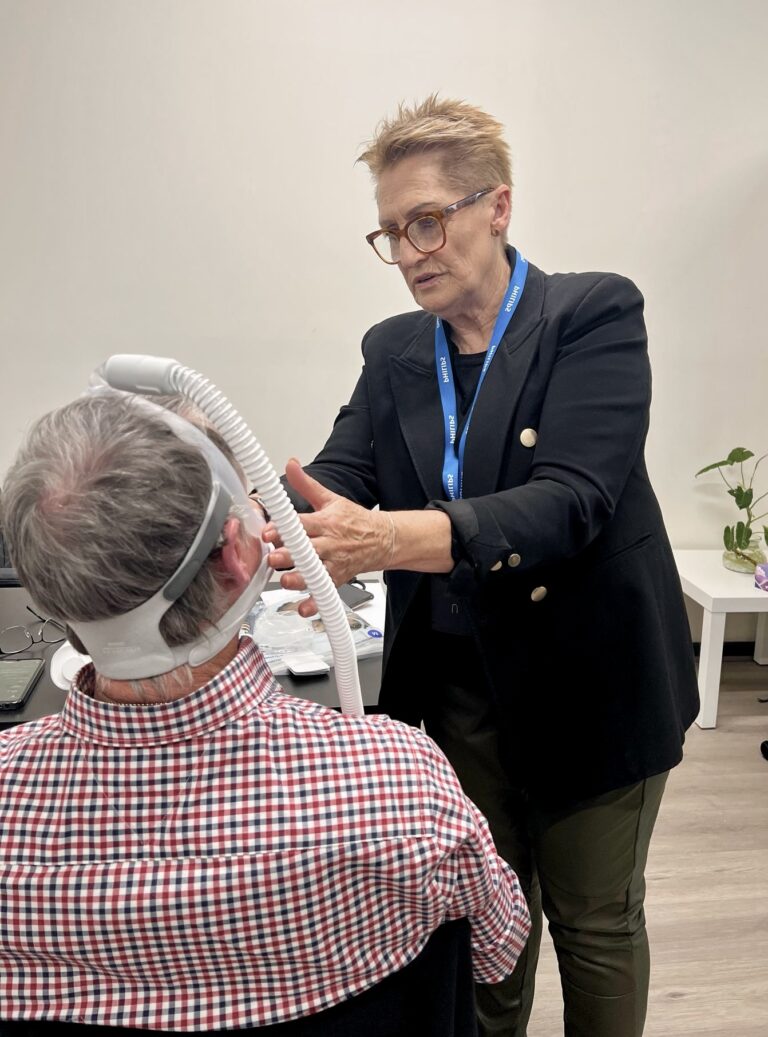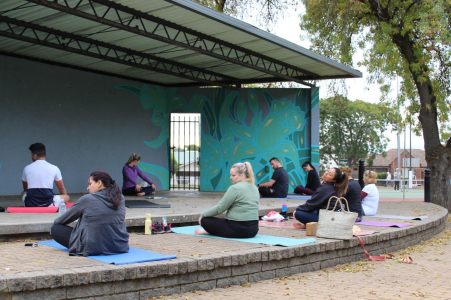A quality sleep does not only depend on the number of hours you spend in bed, but more importantly, whether you complete all stages of sleep in a healthy sleep cycle. Each night, your body and brain go through a tightly regulated sleep process that directly affects memory, physical recovery, and overall health. CLM Sleep sends this article to readers to help you understand the sleep cycle, the stages of sleep, and how to effectively improve sleep quality.
What is the sleep cycle?
The sleep cycle is a series of stages that the body goes through repeatedly throughout the night. A complete sleep cycle typically lasts about 70 to 110 minutes, including two main stages: non-REM (NREM) sleep and REM (rapid eye movement) sleep. On average, each person goes through 4 to 6 sleep cycles each night.
Each cycle begins with light sleep, gradually transitioning to deep sleep, and then ending in the REM stage. The balance and repetition of these sleep stages are essential for physical and mental recovery.
Is each sleep cycle 90 minutes?
Not exactly, Although it is often said that each sleep cycle lasts about 90 minutes, this figure is just an estimate. In fact, the duration of a sleep cycle can vary. According to the study “Ultradian sleep cycles: Frequency, duration, and associations with individual and environmental factors—A retrospective study” published in the journal Sleep Health, “The median sleep cycle duration was 96 minutes out of 6064 polysomnographically-recorded cycles.”
According to another study “Pyjamas, Polysomnography and Professional Athletes: The Role of Sleep Tracking Technology in Sport” published on PubMed Central, a full sleep cycle, which includes three NREM stages and one REM stage, can last from 70 to 110 minutes. This duration can vary depending on factors such as age, sleep quality, and individual circadian rhythms. There is a difference in the distribution of duration and timing across sleep cycles. In the first sleep cycle, NREM sleep is longer and gradually decreases in the following cycles, while REM sleep is shortest at first and gradually increases in the later cycles.
How many sleep cycles are needed each night?
To ensure good health for effective work, adults should complete 4 to 6 sleep cycles, equivalent to 7 to 9 hours of sleep each night. The non- continuous cycles may still meet the required amount of time, but the time allocated for important sleep stages will be reduced, affecting memory, mood and the immune system.
The Stages of Sleep in a Normal Sleep Cycle
An overall sleep cycle includes 4 stages of sleep, divided into two groups: NREM sleep and REM. Each stage plays a unique role in the recovery, regeneration, and maintenance of brain and body function.
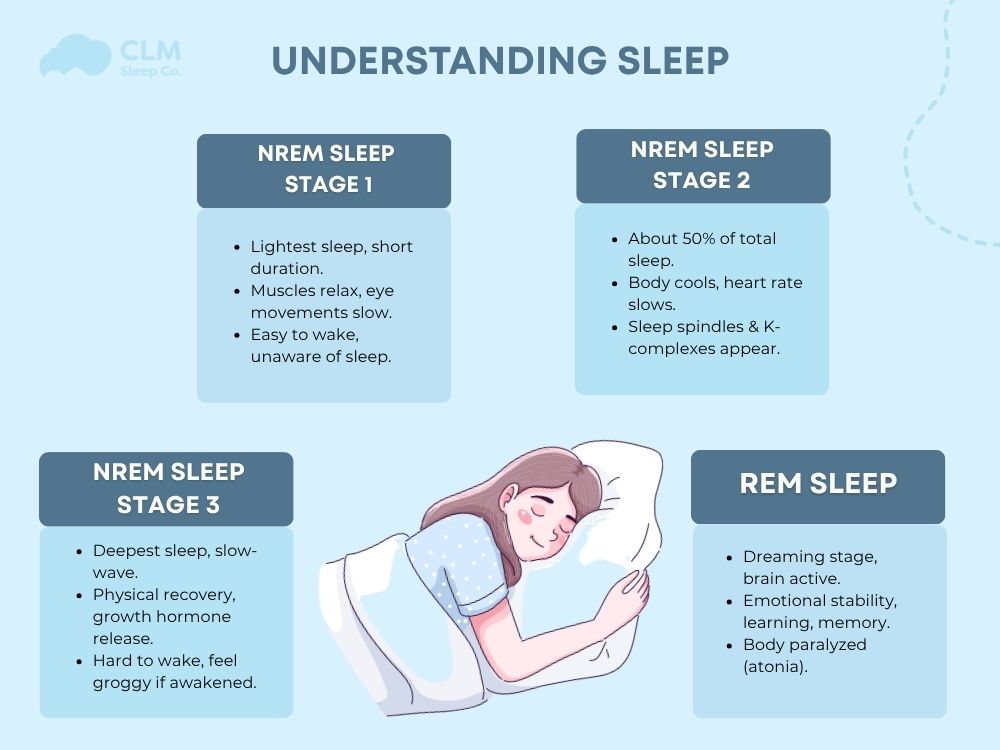
Non-REM Sleep
Learn more about each type first, NREM sleep includes 3 stages, from light to deep. During these stages, the body slows down, supporting tissue recovery, boosting immunity, and conserving energy.
NREM sleep stage 1 (Transition to Sleep)
This is the lightest stage of sleep, lasting only a few minutes, marking the transition from wakefulness to sleep. Muscles begin to relax, and eye movements slow down. People awakened during this stage often do not realize they have been asleep.
NREM sleep stage 2 (Light Sleep)
This stage accounts for about % of total sleep time. Body temperature decreases, and heart rate slows down. Signs of characteristic brain wave forms such as sleep spindles and K-complexes appear, helping to maintain sleep and support memory.
NREM sleep stage 3 (Deep Sleep)
Also known as slow-wave sleep, this is an important stage for physical recovery and the secretion of growth hormone. Once a person enters this stage, it is very difficult to wake them, and if they are awakened, they often feel groggy and lethargic.
See more:
How Much Deep Sleep Is Normal?
REM Sleep
This is the stage where dreams often occur. This stage plays an important role in emotional stability, learning, and memory retention. The brain is almost as active as when awake, but the body enters a state of temporary paralysis (atonia) to prevent the execution of actions in dreams.
(*) Note: REM usually begins about 90 minutes after falling asleep and lasts longer during cycles in the morning.
See more:
How Much REM Sleep Should You Get?
How to Get More REM Sleep Naturally
Here is a comparison table that we have compiled to help you have a better perspective and understanding of the stages of sleep.
| Standard | Deep Sleep | REM Sleep |
| Main role | Body recovery, tissue regeneration, immune enhancement | Emotional processing, memory reinforcement, dreams |
| Time of occurrence | The initial stage of the sleep cycle | The later stage of the sleep cycle |
| How to improve specificity | – Get enough sleep – Exercise regularly – Avoid alcohol and caffeine before sleeping | – Maintain a regular sleep schedule – Meditate and manage stress – Reduce blue light |
| Harmful factors | Stress, lack of sleep, sleep disorders | Anxiety, circadian rhythm disruption, use of electronic devices (phone, earphone, laptop,…) |
| Monitoring device. Yes or no? | Yes – using a sleep machine | Yes – offer appears in modern devices |
Comparison table of ways to improve Deep Sleep, REM Sleep, and Overall Sleep
What factors affect the stages of sleep?
Severals internal and external can impact how well your body progresses through the cycles of sleep stages:
- Age: Infants spend more time in REM, while older adults decrease deep sleep time.
- Lifestyle habits: Irregular sleep hours, using caffeine, energy drinks, or electronic devices before sleep can disrupt the sleep structure.
- Stress & psychology: Anxiety and depression can slow down the transition to REM or reduce deep sleep time.
- Sleep environment: The impact of light, noise, and temperature can make it difficult for you to fall asleep or easily wake up, disrupting your sleep.
- Sleep disorders: Insomnia, sleep apnea, restless leg syndrome can disrupt the sleep cycle.
- Physical health: Chronic diseases, pain, or hormonal imbalances can also affect sleep stages (depending on the severity for each individual).
Ways to Improve Sleep Quality
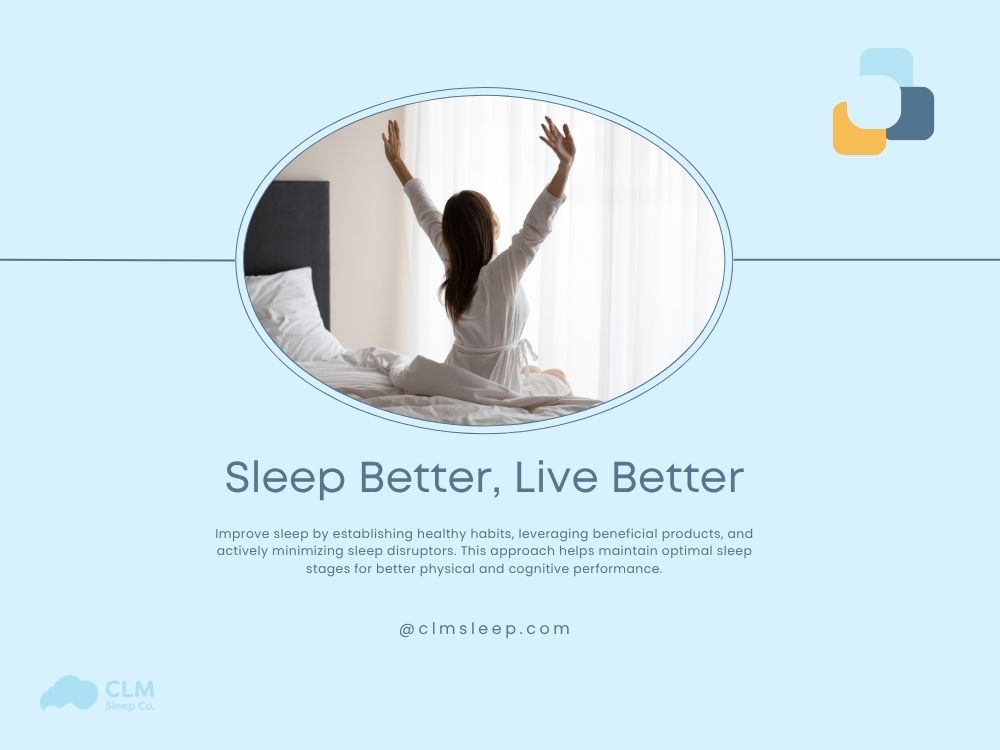
Improving your sleep hygiene and managing contributing factors can help maintain healthy stages of sleep cycle for optimal physical and cognitive performance. Let’s continue reading!
It’s is crucial to establish healthy sleep habits
- Maintain a fixed sleep schedule, even on weekends.
- Create a relaxation routine before bedtime such as reading books or listening to soft music.
- Use sleep products like white noise machines, CPAP machines, blackout curtains, or smart mattresses.
Minimize factors that cause sleep disturbances.
- Avoid using caffeine and alcohol before bedtime.
- Treat sleep disorders with medical therapy or supportive devices like CPAP Machines, Masks, And Other Sleep Apnea Equipment.
- Optimize the sleeping space to minimize being awakened during the night.
See more: Effective Ways to Heal Sleep Apnea Naturally for Better Health
Conclusion of the article
Understanding the stages of sleep and how they function in the sleep cycle is the first step to improving physical and mental health. Sleep plays a crucial role in restoring the body and mind in the current era of digital technology development. Smart device-assisted choices – sleep applications are one of the modern solutions that help you fall asleep quickly and save time. CLM Sleep is honored to accompany you in improving your sleep every night. We hope this article is helpful and brings value to readers.
Reference
1. Schmidt C, Reichert CF, Münch M, Gabel V, Stefani O, Chellappa SL, et al. Ultradian sleep cycles: Frequency, duration, and associations with individual and environmental factors—A retrospective study. Sleep Health. 2024 Feb;10(1 Suppl):S52–S62. doi:10.1016/j.sleh.2023.09.006.
2. Driller MW, Dunican IC, Omond SET, Boukhris O, Stevenson S, Lambing K, et al. Pyjamas, Polysomnography and Professional Athletes: The Role of Sleep Tracking Technology in Sport. Sports (Basel). 2023 Jan;11(1):14. doi:10.3390/sports11010014. PMID: 36668718; PMCID: PMC9861232.
3. Aakash K. Patel; Vamsi Reddy; Karlie R. Shumway; John F. Araujo. Physiology, Sleep Stages. In: StatPearls. Treasure Island (FL): StatPearls Publishing; 2024 Jan. PMID: 30252388. Bookshelf ID: NBK526132
